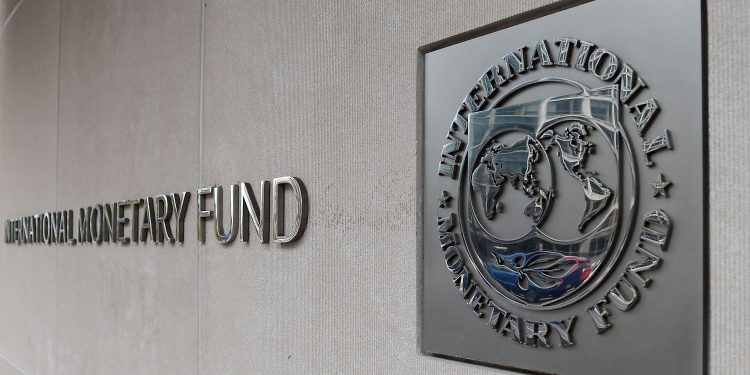The April report of the International Monetary Fund (IMF) on the world economic outlook gives a graphic description of the disastrous effects of the sanctions imposed by the US and the European Union on Russia for the latter’s invasion of Ukraine. This only reinforces the truth about the strength of the tool of sanctions. The cascading effects are even more devastating as the world has already been ravaged by the COVID-19 pandemic. The war came when some recovery was being made from the economic paralysis due to the pandemic. The first ominous sign that the report mentions is the slashing of its forecast for global economic growth by nearly a full percentage. It has given a grim warning that inflation is now a “clear and present danger” for many countries. The war is expected to further increase inflation, the IMF said, with the cautionary remark that a further tightening of Western sanctions on Russia to target the latter’s energy exports would cause another major drop in global output.
The US and its allies were well aware of the economic costs their actions against Russia would cause to the world. The US was being perceived as militarily and economically weak before the Ukraine invasion by Russia took place. The war presented the US with a golden opportunity to make over its sagging global image and, interestingly, China too seems to have been made toothless in this decisive phase of world history. The current layers of sanctions against Russia proved to the whole world that America, especially under the Biden administration, is capable of controlling world affairs even without going to war directly.
There is a marked difference between sanctions against a not so powerful country and a global power-house such as Russia. It could well be that the Western powers knew the shape of things to come, but withheld the knowledge from the world. If Putin’s desire for aggrandisement was the cause of the Ukraine crisis, the West was no less culpable for provoking Russia by constantly goading Ukraine to take on the Russian might with the false promise of inducting it into NATO.
Now, the IMF warns rising prices of food, energy and other goods could trigger social unrest, particularly in vulnerable developing countries. Reduced supplies of oil, gas and metals produced by Russia, wheat and corn – produced by both Russia and Ukraine – and fertilisers by Belarus drove up prices sharply in Europe, Asia, the Middle East, North and Sub-Saharan Africa. The effects are most painful in lower-income households around the world.
The IMF has downgraded its forecasts for the second time this year and said it now projected global growth of 3.6 per cent in both 2022 and 2023, a drop of 0.8 and 0.2 percentage points, respectively, from its January forecast because of the war’s direct effects on Russia and Ukraine and global spillovers. The words of the IMF Managing Director Kristalina Georgieva sound like a pathos-filled cry: “What has Russian invasion of Ukraine cost? A crisis on top of a crisis with devastating human costs and a massive setback for the global economy.”
According to the IMF’s estimate, Ukraine’s GDP will collapse by 35 per cent this year, while Russia’s output will shrink by 8.5 per cent in 2022. The decline of Russia’s GDP would double and go up to 17 per cent by 2023 if tightening of sanctions against it are to include restrictions on energy exports, according to IMF Chief Economist Pierre-Olivier Gourinchas.
Other effects of this war are escalation in energy prices and financial market turmoil that would cut another two percentage points off the global growth forecasts, it is feared. The war exacerbated inflation that had already been rising in many countries because of imbalances in supply and demand linked to the COVID-19 pandemic. The latest lockdowns in China are likely to cause new bottlenecks in global supply chains. The war compounds the problems created by the series of supply shocks that have struck the global economy during the past couple of years. The IMF uses the metaphor of earthquake to describe the impact that the combined effects of the Russia-Ukraine conflict and the pandemic are causing. “Like seismic waves, its effects will propagate far and wide – through commodity markets, trade, and financial linkages,” Gourinchas has warned.
On the other hand, central banks face increased pressure to fight inflation with tighter monetary policy. Further tightening of sanctions could only speed up the process that would bring in more difficulties for developing economies. The IMF says inflation is now projected to remain higher for longer, as it is driven by war-induced commodity price increases and broadening price pressures. The situation could get worse if supply-demand imbalances deepened.
The IMF’s report gives an important reminder to policymakers that they need to focus much more attention on encouraging innovation, improving productivity and strengthening other drivers of robust, inclusive economic growth. Failure to do so will make the risk of medium-term growth stagnation uncomfortably high.
The Russia-Ukraine war coupled with the pandemic poses a grave threat to the existing global economic order. The models that are being used are not efficacious enough to tide over the difficulties. In a world that is already plagued by considerable climate, economic, financial, institutional, political and social challenges, the current developments do not augur well.






































